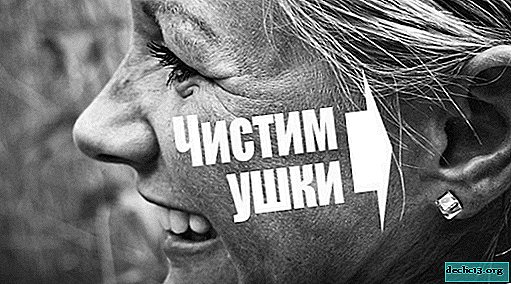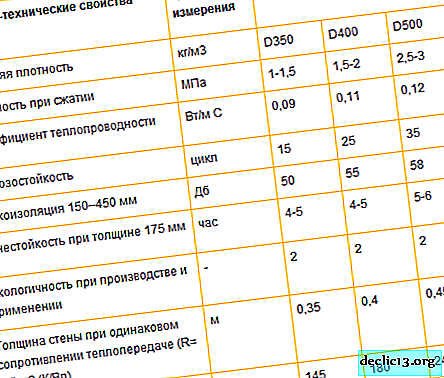How to wean a baby from breastfeeding after a year

Mother's milk is the key to the health and normal development of the child. Together with the mother’s milk, the developing organism receives everything necessary, therefore doctors do not recommend weaning the baby from the breast for up to 6 months.
According to pediatricians, there is no need to continue breastfeeding after a year. Leaving mother’s milk in the baby’s diet makes sense if both sides express mutual agreement. In the article, we will consider how to wean a baby from breastfeeding after a year.
Traditionally, the first thoughts about stopping lactation visit the mother after the child reaches the age of one. The following factors are inclining mom to such a decision:
- There is no way to stay at home as maternity leave ends.
- The menu of the child contains products that are a source of nutrients.
- Snacks at the chest hinder the transition to good nutrition, and milk is not able to compensate for the baby’s energy costs.
- Breastfeeding at night prevents the baby and mother from resting.
Sometimes weaning a baby from the breast becomes a necessity. We are talking about the upcoming long separation from the baby or a serious illness in the mother, the treatment of which involves taking medications that are contraindicated in breastfeeding.
Step-by-Step Action Plan
Practice shows that weaning a baby from the chest is not easy. If you have any problems with this, I advise you to use the instructions below. It will facilitate the process and help in achieving the goal.
- Choose the right time for weaning from the chest. According to statistics, the baby’s need for breastfeeding is reduced from 9 months. By the year the baby receives complementary foods, providing the body with important trace elements. Further breastfeeding is fraught with conversion from necessity to psychological dependence.
- Act gradually. At the initial stage, replace breastfeeding in the daytime with another product. Later, make the same changes in the morning and evening meal. As a result, there will be feeding before day and night rest. Replace them later. Observe a pause between the abolition of breastfeeding at 1 week.
- Change your feeding approach. Change the place of eating, distract the child with toys and songs, monitor his behavior. Continued moodiness is a sign of psychological unpreparedness for change. In this case, wait a little while weaning.
- If the child is ill, teeth are being cut or vaccinated, wait a bit. In a stressful situation, give milk as much as you ask. It is recommended to start the process in spring or autumn, but not in the summer. After starting the procedure, it is not recommended for the nursing mother to leave the baby for a long time, as he will receive double stress.
- Do not tell the baby that the milk is out or spoiled. After the next meal, he will make sure that you lied. This will contribute to the formation of the first doubts and the development of a desire to check the words of mom.
If you are determined to stop breastfeeding, act and remain confident. In this case, remorse is inappropriate, and the child is able to recognize them. And do not pay attention to the negative opinion of friends and loved ones.
How to wean a baby after a year from nightly feeding

A newborn needs food both in the daytime and at night. Over time, the need for food undergoes changes, and sleepless nights lead to severe fatigue of the nursing mother. As a result, there are thoughts about stopping night feeding.
If the cause of nightly appetite in a child after a year is not a physical need, it is recommended to take a set of measures aimed at stopping night feeding. The main thing is that actions should be gradual, not forced.
- To get started, shorten the duration of feeding. If using a purchased mixture, add more water, and eventually switch to the water itself. This approach is appropriate if the child receives the optimal amount of food during the day.
- Reducing night feeding is recommended after the introduction of complementary foods. In the evening, give the baby porridge, and before going to bed a little baby kefir or briefly attach to the chest.
- Accustoming to a long night's sleep, make sure that the children's room is comfortable. Noise, high temperature, dry air - all this interferes with sleep. And a child who has not slept well becomes moody and asks to eat.
- Patiently explain to the baby that the next time he will eat in the morning, when the sun appears outside the window. And even if the crumb does not understand you, continue conversations, showing perseverance and patience.
It is not uncommon for a child to wake up at night in order to have a meal, contrary to the measures taken by the parents. If such a problem is overtaken, look for its root cause. It could be:
- Hunger. In this case, review the daily regimen and eliminate distractions from food. It's about toys, cartoons.
- Lack of communication. If a nursing mother goes to work, it is worth devoting more time to the baby in the evening. This will help fun games, gentle massage or simple hugs.
- Habit. This problem is faced by parents who feed their children in a crib from birth. Give a chest or a bottle while sitting on a sofa or in an armchair.
//www.youtube.com/watch?v=k6Kuc8d5-68
Accustoming to a prolonged night sleep and stopping night feeding is not an easy task. It’s good to solve it under the power of every mommy, among whose allies there are gradual actions, perseverance and patience.
Folk methods and means

If you decide to stop breastfeeding, wean the baby from the breast gently and unobtrusively. Pediatricians recommend training after a year, since at this point in the diet includes an extensive list of products. And folk methods and tools will help in achieving the goal.
Note, before using alternative methods, be sure to consult a doctor. All methods considered are for informational purposes only."Grandma's Way." Contrary to simplicity, the method is quite severe. For a few days, give your child to be raised by your dad, grandmother, or other close relative. Mom will have to fight with incoming milk. For this, the chest is pulled by a sheet.
The method provides a quick and good result, but there are also disadvantages - psychological trauma for the baby, fever and discomfort for the mother, a high likelihood of developing mastitis. Today, this method is rarely used, because it is too cruel to the child and to the nursing mother.
"Tasty way." Some mothers take advantage of tricks, pushing the baby to give up breast independently. To achieve the result, they smear the nipples with tasteless substances, including wormwood, brilliant green and mustard.
The method is effective, but it also has disadvantages: stress for the child, violation of children's trust in the mother. Not all substances are harmless to the baby. In particular, tincture of wormwood is potentially hazardous to health. Use folk remedies should be very careful.
Methodology of Dr. Komarovsky
Weaning is a complex process, but if you follow the recommendations of Dr. Komarovsky, achieving the result will be easier and faster. Thanks to the advice of a doctor, the child will avoid stress, which is important. What does Komarovsky recommend?
- Use less fluid. As a result, the amount of milk will decrease and it will be more difficult for the child to receive food. Fighting such difficulties will quickly get bored, which will accelerate the process of weaning from the mother’s breast.
- Eliminate foods that increase milk production from your diet. To remove excess fluid from the body, gradually increase physical activity.
- Gradually reduce the duration of feeding. The doctor advises skipping meals sometimes. So that the child does not notice a pause, it is recommended to distract him with something interesting.
The main goal of Dr. Komarovsky’s technique is to make it difficult for the baby to breastfeed. According to the doctor, this approach is simple and least stressful. To increase the effectiveness, the doctor advises to resort to the help of interesting activities, including games, looking at pictures. Any activity that is not related to breastfeeding is suitable.
The best painless way
The child grows and over time there comes a time when it is necessary to abandon breastfeeding. For a tiny man, this life stage is difficult, so it is important to make sure that it ends as painlessly as possible.
- Be sure to consider the emotional and physical condition of the child. Each baby is individual and the time for weaning from the chest is different in each case. If the baby calms down or falls asleep without applying to the chest, this indicates his emotional readiness for such changes.
- Pay particular attention to complementary foods. Pediatricians recommend at the initial stage to replace one day's breastfeeding with regular food, and in the future, similarly change the feeding in the morning and evening. To change quietly, change the place of children's meal.
- Then proceed to weaning from night feeding. If the baby is crying, distract him with kefir, juice or water. When he drinks from a bottle, be near. Maternal love will help you calmly survive breaking up.
- Get ready for weaning as a serious test for both sides. During the process, between the mother and the child, the close connection is destroyed and an invisible border appears. During this difficult period, pay more attention to the baby, say gentle words, do massage, play.
- Do not use methods involving lubricating the nipples with unpleasant substances or prolonged parting. Otherwise, avoiding complications will be problematic.
Do not start the process of interrupting breastfeeding in the summer, with a disease, after a preventive vaccination. Weaning is recommended when the child feels comfortable and calm.
Medical Ways

Pharmacies sell drugs that reduce the production of breast milk.
If you decide to achieve the goal with the help of medications, be sure to consult a doctor, since expensive hormonal drugs have contraindications and side effects.Traditionally prescribed Utrozhestan, Norkolut, Microfollin, Dostinex or Bromocriptine. Milk production stops completely within 1-2 weeks. The term directly depends on the type of drug used.
Remember, after taking the first pill, it is forbidden to give breasts, because milk is saturated with hormones that enter the mother's body. In general, the medication is harsh. It is not suitable for women whose body is too sensitive to hormonal drugs.
Do methods differ after a year, at 1.5 years and at 2 years old?
The World Health Organization is not recommended to interrupt breastfeeding until the age of two, but some pediatricians do not agree with this. Sometimes there are times when the mother continues to feed the baby until 3, and even up to 5 years. And depending on age, the method of weaning from the chest varies and has features.
- In a one-year-old baby, milk is not the main source of food. It’s just a healthy supplement rich in important hormones and enzymes. After a year, the easy methods described above help to wean a baby from the chest.
- In one and a half years, cognitive activities and interesting games contribute to the achievement of the goal. It is recommended to offer breasts at a time uncomfortable for the child. As a result, feeding is perceived as an unpleasant duty.
- If breastfeeding lasts up to 2 years or longer, this is fraught with turning the baby into a whim. To solve the problem, apply the methods described above, conduct conversations. At this point, the child partially understands the parents.
Summing up, I note that weaning the baby from the breast is not too early. This is fraught with a slowdown in the development of immunity, increased moodiness, dulling of a sense of security and intense stress, accompanied by the appearance of bad habits. This is a desire to bite pens, nails and other objects.
If we talk about late excommunication, at the age of 2-3 years, the baby performs conscious actions. He understands that for a meal it is enough to get to the chest. But at this point, feeding brings a lot of pain to the mother, as the child has already erupted teeth. And further tightening is fraught with increased psychological dependence on breastfeeding.

















